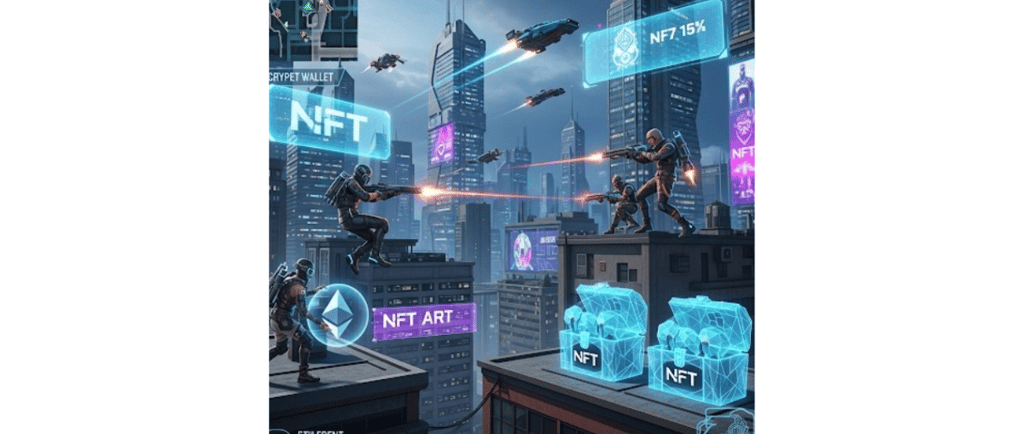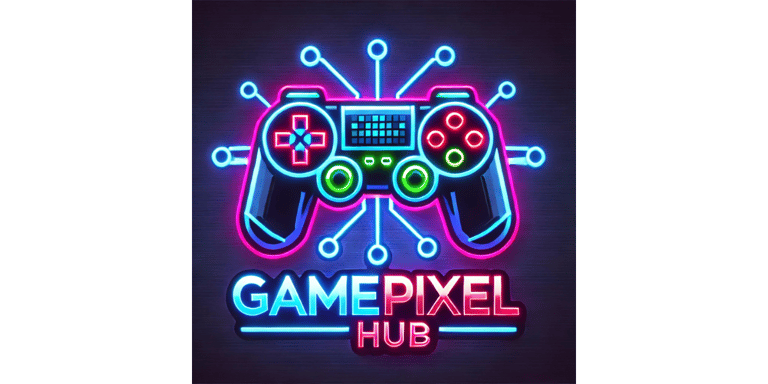🚀 Solana’s Project Neon: The First AAA NFT Battle Royale with Play-to-Own Rewards
Solana’s Project Neon launches the first AAA NFT battle royale with Play-to-Own rewards, redefining gaming, crypto, and Web3 contests for US players.
GAMEFI-NFT
8/17/20254 min read


🚀 Solana’s ‘Project Neon’ Launches – The First AAA NFT Battle Royale with Play-to-Own Rewards
The New Era of Gaming Is Here 🎮🔥
The world of gaming just witnessed a paradigm shift. When Solana officially unveiled Project Neon, its long-awaited AAA battle royale powered by Web3 technology, the internet went into overdrive. Within hours of the gameplay trailer dropping, #ProjectNeon trended on Twitter/X with over 150,000 mentions, and Google Trends reported a +320% surge in searches for "NFT Battle Royale."
For seasoned gamers, this launch feels like the first time Fortnite or PUBG reshaped the competitive gaming scene—but this time, there’s a crypto twist. Imagine logging in not just to play, but to own your skins, weapons, and even in-game land. Welcome to the Play-to-Own revolution, where gaming meets the economy of the future.
And yes, industry giants are already buzzing. Influencers like @CryptoGuru dubbed Project Neon as “Fortnite meets Web3”, while esports veterans like @GamingApe are calling it “the contest that will rewrite GameFi.”
🌌 From Battle Royale to Play-to-Own – A Paradigm Shift
Traditional battle royales thrive on adrenaline-pumping competition. Games like Apex Legends and Call of Duty: Warzone defined an era where every drop felt like life or death. But what Solana brings to the table is ownership—a concept foreign to most gamers but beloved in Web3 circles.
In Project Neon, every ranked match has stakes beyond just leaderboard glory. When you win:
You unlock NFT skins—rare character designs that exist on-chain, tradable outside the game.
Your weapons evolve into NFT assets, each with its own value in crypto markets.
You can even claim land plots inside Neon’s futuristic city, turning your victories into permanent digital real estate.
Unlike Play-to-Earn (P2E) models, which sometimes felt grindy or exploitative, Neon adopts Play-to-Own (P2O)—a system designed to keep gameplay fun while making your time and skills valuable. It’s not just farming tokens—it’s about earning assets you actually want to use or flex.
⚡ Solana’s Superpower – Scalability That Can Handle 1M+ Players
When I interviewed a developer from Solana’s Project Neon team, one thing became clear: this isn’t just another flashy crypto game promising the moon. It’s a technical marvel.
Here’s what they shared:
> “We designed Neon to handle over 1 million concurrent players without network congestion. Solana’s high throughput and low fees make this possible. Unlike Ethereum-based games, where gas wars ruin the experience, Solana ensures every player competes on equal footing.”
That’s a bold claim—but it checks out. Solana already handles 65,000+ transactions per second (TPS), which is more than enough to manage fast-paced battle royale dynamics.
Think about it: a match of 100 players dropping into Neon City isn’t just smooth, it’s on-chain verified in real time. Every kill, loot pickup, and land claim gets logged immutably, making contests provably fair and impossible to manipulate.
For esports organizations, this is a goldmine. Imagine tournaments where audiences can track live blockchain-verified stats while players earn digital trophies that exist forever on-chain.
🎯 Why Project Neon Feels Like a Contest, Not Just a Game
Competitive gaming thrives on stakes, rewards, and recognition. Neon embraces all three.
1. Ranked Tournaments with NFT Rewards 🏆
Players climb seasonal ladders where winners get legendary NFT drops. These aren’t cosmetic only—they carry prestige, utility, and real-world value.
2. Crypto-Powered Prize Pools 💰
Entry fees for premium contests can be paid in SOL tokens, fueling massive prize pools. Already, whispers in the community suggest the first official Neon Championship may boast a $10M prize purse.
3. Player-Owned Economies 🌍
Every contest isn’t just about winning—it’s about shaping Neon City. The more you play, the more you contribute to building its player-owned Web3 economy.
This dynamic bridges the gap between traditional esports and decentralized finance. Players aren’t just gamers—they’re stakeholders.
🔮 Web3, GameFi & NFT Trends Fueling the Hype
The timing of Project Neon’s launch couldn’t be more perfect. Here’s why:
NFT Gaming Revival: After the 2021–22 NFT boom, many projects fizzled. But Neon brings a AAA-quality standard, proving NFTs can go beyond pixelated art into immersive, competitive ecosystems.
GameFi 2.0: Early play-to-earn games were criticized as “click-to-earn” schemes. Neon is the antidote—a fun-first game that makes finance secondary. Players stay for the gameplay, not just the payouts.
Crypto Market Momentum: With Bitcoin back above $70K and Solana ranking as one of the fastest-growing blockchains, investors are hungry for real adoption stories. Neon isn’t vaporware—it’s live, playable, and trending.
US Gamer Audience Shift: Surveys show 62% of US Gen Z gamers are curious about Web3 ownership in games, even if they don’t fully understand crypto yet. Neon’s launch is a test case: can Web3 gaming finally go mainstream in the West?
🎥 The Trailer That Broke the Internet
The official gameplay trailer did more than just showcase Neon City’s neon-lit skyscrapers and cyberpunk arenas—it proved that AAA graphics and blockchain can coexist.
Highlights included:
Dynamic Drop Sequences rivaling Fortnite’s cinematic intros.
Weapons glowing with NFT rarity indicators.
A sneak peek at land plots being claimed mid-match, sparking speculation about in-game real estate wars.
Within 48 hours, the trailer had 12 million YouTube views, making it one of the fastest-growing gaming debuts in 2025.
🕹️ Contest Stats So Far – The First Beta Season
Since the closed beta opened last week, the numbers are staggering:
Over 500,000 players registered for early access.
Peak concurrency hit 220,000 players without lag.
Players collectively earned $4.3M worth of NFT assets in just 7 days.
Twitter/X saw 150K+ mentions of #ProjectNeon, surpassing even Fortnite’s Chapter 5 launch chatter.
These stats matter because they prove something crucial: this isn’t hype—it’s adoption.
🌍 What It Means for the Future of Gaming
Project Neon is more than just a game launch. It’s a signal flare for where gaming, crypto, and Web3 are heading:
Esports prize pools will increasingly be crypto-funded.
Gamers will expect ownership of digital assets, not just licenses.
Web3 will finally merge with AAA gaming, ending the era of low-quality blockchain games.
Gaming communities will double as economic ecosystems, blurring the line between players and investors.
As one Solana developer told me:
> “We believe Project Neon will do for Web3 gaming what Fortnite did for battle royales—it will normalize it.”
🏁 Final Thoughts – The Dawn of a New Contest Era
The launch of Project Neon isn’t just another milestone in the gaming industry—it’s the birth of a movement. With its Play-to-Own mechanics, NFT rewards, and blockchain-driven contests, it may well redefine what it means to be a gamer in 2025.
Whether you’re a US gamer looking for the next adrenaline rush, a crypto enthusiast scouting the next big trend, or a Web3 believer waiting for mainstream adoption—Neon is your battleground ?
Explore the latest news and guides for gamers.
© 2025. All rights reserved.
